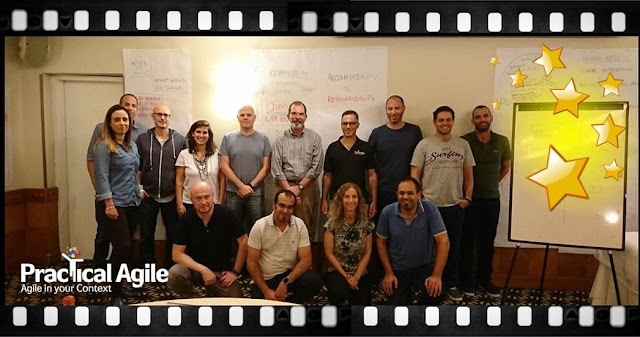I've had the honor of attending Christopher Avery's The Responsibility Process® workshop on October 28-29th 2018. We all cringe when we hear excuses or blame but it eludes some of us that shame and obligation are not the nirvana of responsibility though they feel almost as bad. To some people shame and obligation IS responsible behavior. Christopher worked with all of the participants on understanding how to responsibility is not Obligation, Shame, Justifying or Blame and how team members and management can start working on their own responsibility and inspire responsibility in others.
Christopher started the workshop by asking us to find the "Taxes" and "Dividends" of responsible teams and members, helping us to grasp what it is and what are the costs of not achieving responsibility within teams and our lives.
He then proceeded to explain the difference between these states and how they hurt us from both a personal view, team members and especially in management positions.
He explained why more accountability in organizations does not equal more responsibility, how to inspire responsible behavior and the 3 keys to responsibility:
- Clear Intention
- Focused Attention
- Effective Action
We discussed the circles of control and power, how clarity leads to trust and how power comes from being able to stop-think-act (I'm paraphrasing from scuba diving rule book) while control circle is actually hurting decision making by having the illusion of fixing the problem while doing nothing to really solve anything other than feeding the stressful behavior.
We talked about why responsible teams are more productive and why collaboration will produce much higher results than winning, but what is winning if not collaborating?... (did you ever hear "its not our problem" or "you can't touch that" from your supervisor?)
Later we discussed trust issues between teams and members, how to build and rebuild trust and how to avoid losing it since its so hard to rebuild.
In the end of the workshop we all understood why responsible people and teams do a better job than any other team and how we can build our own teams and companies to be responsible for all of our successes.
I would like to say thanks to Practical Agile for enabling my attendance. Thank you Lior, Ilan and Dalit.
Resources:











